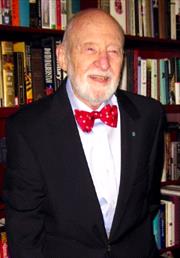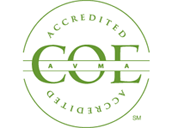VIN News compares accreditors for human and veterinary medicine in "COE seeks veterinarian input on accreditation changes."
The Council on Education's 20 members have the power to extend programmatic accreditation to veterinary schools in the United States and Canada, per the U.S. Department of Education. As a condition of its authority, the agency must maintain a certain level of independence from its main financial sponsor and parent organization, the American Veterinary Medical Association.
For years, critics have alleged that the relationship between the two entities is fraught, with COE actions reflecting AVMA politics and priorities. In response, USDE began demanding in 2012 that the COE distance itself from the AVMA and make other operational changes if it wanted to keep its status as the nation's sole accreditor of veterinary education. The complaints from within the profession, however, kept coming. AVMA reacted by inviting the Association of American Veterinary Medical Colleges in to play a larger roll in how the COE operates and now suggests that COE functions with greater autonomy, much like its counterpart in human medicine, the Liaison Committee on Medical Education, or LCME.
One outspoken critic — Dr. Robert "Bob" Marshak, dean emeritus of the University of Pennsylvania College of Veterinary Medicine — believes that the comparison between the COE and LCME is contrived. Conflicts of interest remain, he asserts. Marshak recently shared his perspective in a letter to the VIN News Service, to which the COE Executive Committee responded.

Photo courtesy of the Marshak family
Dr. Robert Marshak
The LCME, separated from its sponsoring organizations by an impenetrable firewall, has its own staff, determines the size of its budget and prepares and submits its mandatory reports to the U.S. Department of Education. After LCME members are appointed they have no contact with their sponsoring organizations or any other outside entity. AMA and AAMC personnel have no role in, or presence during, the LCME's deliberations, decisions or development of standards.
In stark contrast, the COE is dependent on the AVMA for staff, including for the preparation of mandatory reports to the USDE. It does not determine or control its budget. Further, AVMA staff are present during all or most COE meetings and site visits. During Dr. David Granstrom's recent tenure as director of the AVMA Division of Education and Research, a position that reports directly to the AVMA's CEO, he attended all or most COE meetings and escorted COE members on all or most site visits to American and foreign veterinary colleges. I believe it defies logic to trust that Dr. Granstrom's ubiquitous presence at COE site visits and COE meetings did not exert some influence on the agency's decision making process. For these many reasons his publicly stated assurances that a "firewall" separates the COE from the AVMA are without merit.
Robert R. Marshak, DVM, DACVIM
Professor emeritus of medicine and dean emeritus, University of Pennsylvania School of Veterinary Medicine

Dr. Marshak asserts that the Executive Committee of the AVMA COE misrepresented the degree of autonomy and independence of the COE by comparing itself to the LCME, the accrediting agency for colleges of medicine. The Executive Committee respectfully disagrees with Dr. Marshak and would like to clarify some points.
The LCME is not a separate corporation, but is a committee which is supported by LCME staff who are not independent of the AMA or the Association of American Medical Colleges. The AMA or the AAMC employs the LCME staff and determines the number of staff provided to support the LCME just as designated AVMA and AAVMC staff provide support to the COE. The AMA and the AAMC determines the size of the budget and provides funds to support the LCME. This is not dissimilar to the COE in that the funding for the COE is provided from the AVMA, AAVMC, and also from the colleges it accredits.
Both accrediting agencies are recognized by the U.S. Department of Education as accreditors and both LCME and COE staff work closely with the leadership of the accrediting body to draft and finalize petitions for recognition or any compliance reports required. Dr. Marshak asserts that no AMA or AAMC personnel have a role in or presence during the LCME's deliberations, decisions, or development of standards. LCME staff (AMA and AAMC employees) are present at LCME meetings, as are staff who provide support to the COE. The members of the LCME and the COE volunteer their time on behalf of the profession and have professional staff (LCME or COE), who are bound by the confidentiality of each respective decision making body, to ensure the decisions of each respective agency can be communicated and implemented as appropriate.
The description of LCME survey teams that carry out accreditation site visits states that one team member is typically a member of the LCME or of the LCME Secretariat staff to ensure consistency in the evaluation process. The LCME member or the LCME staff member is considered a team member. This does differ from the COE as any COE member who attends a site visit is considered an observer and does not participate in the accreditation decision making process. COE staff who are present on site visits are there, as LCME staff are present on medical school site visits, to ensure consistency in the evaluation process and to provide support to the volunteer team.
The LCME and the COE, while there are differences in how each agency is structured and the specific procedures that are employed in the accreditation process, are both autonomous in their ability to make accreditation decisions, develop policies and procedures, and set the standards of accreditation. For the COE, that authority is codified in the AVMA bylaws, article VIII section 2.b.2, which states: "The Council on Education shall have autonomous authority to evaluate schools and colleges offering a professional degree in veterinary medicine, according to established standards; make accreditation decisions; and assign a classification of accreditation to each such school or college." It's again reflected in the same section of the bylaws under policies and procedures: "The Board of Directors shall develop and approve policies and procedures for the operation of all councils, except for the manual titled Accreditation Policies and Procedures of the AVMA Council on Education that is established by that council." The autonomous authority of the LCME is codified in a memorandum of understanding with the sponsoring organizations.
The Executive Committee believes that both the LCME and the COE have a strong firewall that protects the authority of the COE and the LCME to complete their charge as an accreditor.
Dr. John Scamahorn, chair
Dr. Patrick Farrell, vice-chair
Dr. Spencer Johnston
Dr. Caroline Zeiss